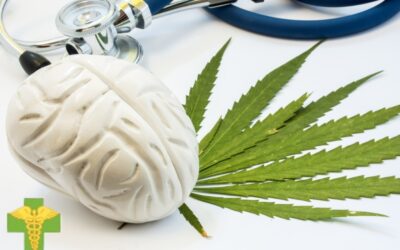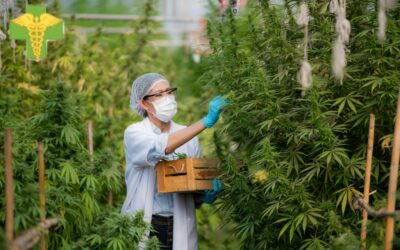Does Cannabis Affect Dreams?
Dreaming is an important – and frankly, enjoyable – part of our nightly sleep routine that occurs when we enter a state of Rapid Eye Movement or REM sleep. Encountering REM sleep regularly has been shown to increase learning capability, help with memory, and even benefit our moods. Going without REM sleep can leave us dreamless and feeling tired and drained both physically and emotionally, so the big question remains: Does cannabis affect dreams? As the use of cannabis for recreational and medical purposes increases, more and more studies are being conducted to try to find answers that may tell us further details on how it affects dreaming and sleep overall.
How We Dream
It might seem like a simple concept – we fall asleep, we dream, and we wake up a little groggy, wondering why we seem to have lost the ability to fly (I swear it felt real!). But dreaming is a little more involved than that. There are four stages of sleep that we encounter during the average night, three of which we pass through before entering REM sleep.
The first stage is Non-Rapid Eye Movement (NREM) sleep. This is generally a light sleep where you’re just beginning to drift off. It’s that in-between period of being awake versus actually sleeping. This stage only lasts for about 5% of our total sleep time.
Stage two is the longest stage and combined with the first stage make up about 50% of a full night’s rest. This is a deeper sleep where your breathing slows, and you become less aware of what’s happening around you. Your body temperature can drop, and your heart rate will become more regular.
The third stage is the deepest sleep and the most difficult to recover from if you’re awoken during it. Expect to be cognitively impaired and groggy for up to an hour after being jolted from stage three sleep, as your body hasn’t had the necessary time to complete the proper sleep process.
Then we have the fourth stage, where dreams come true – erm, sorry…where dreams happen. REM sleep can account for up to two hours each night, and it’s the increased neural activity that naturally occurs that makes us actually dream.
How Does Cannabis Factor in?
Cannabis and dreams have been studied at length, and these studies have found that THC can actually suppress REM sleep while prolonging the other deep sleep stages. This means fewer or even zero dreams will occur if you’re sparking up for a nighttime session. In this way, cannabis can help you fall asleep easier, but it won’t help you fly through the clouds riding a magical tiger (hey, everyone’s dreams are weird, right?). What’s interesting is that CBD does not have the same impact – those who use CBD for pain relief will still enter the REM sleep stage as long as THC isn’t used.
Is This Good or Bad?
It depends on who you are and what you prefer. Cannabis and dreams have an interesting relationship that some may enjoy, and some might not. For those who suffer from PTSD, reducing or eliminating REM sleep can help them have fewer nightmares which improves their overall sleep and provides a better recharge. Others believe that dreams are a way for the body to maintain memories, cope with different emotions, and enhance healthy functionality. If you’ve stopped using cannabis, your dreams may be more vivid, scary, or just plain strange. Determine what you want from your dreams and make your decisions from there!
To find out more about cannabis and dreams, set an appointment with Medical Alternatives Clinic today to discuss your condition and schedule your medical marijuana evaluation.






